BMW has imagined how a premium four-seat electric car for the year 2040 could look with the new i Vision Circular.
Revealed at the Munich motor show, the bold concept adopts an entirely new design language for the German brand, with both radical dimensions and styling details.
While it is roughly similar in size to the current BMW i3 electric supermini, BMW boss Oliver Zipse insisted that it’s only a conceptual study and doesn’t offer a “first foretaste” of the Neue Klasse design language that will be introduced on the company’s EVs from 2025.
Instead, the focus for the i Vision Circular was to create a carbon-neutral EV through the application of ‘circular economy’ principles, with the design brief of “rethink, reduce, reuse and recycle”.
The concept was produced using 100% recycled materials, all of which can subsequently be recycled again. This includes its solid-state battery, which BMW says has higher energy density than today’s lithium ion packs and reduces the use of valuable resources.
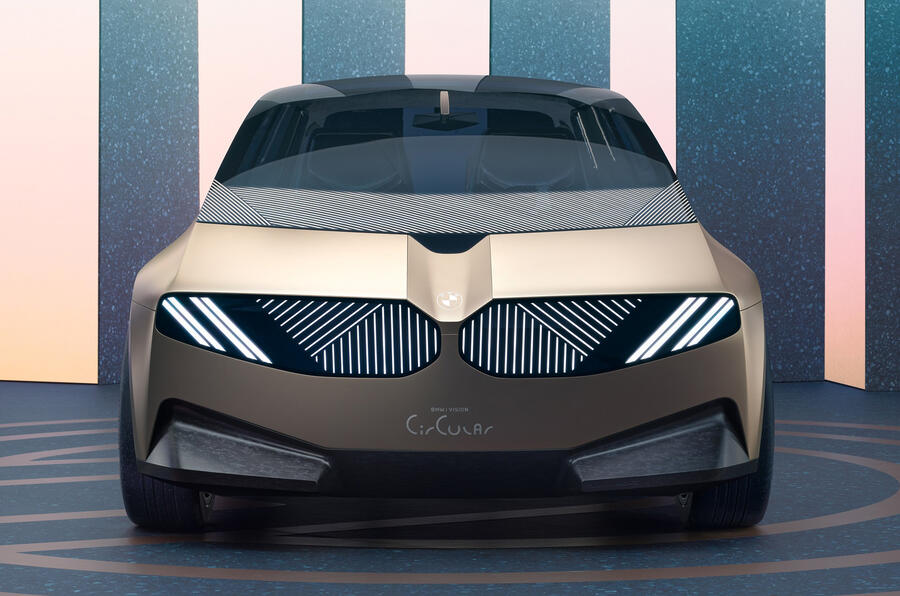
The ‘reduce’ part of the brief is reflected in the car’s design, with a commitment to reducing the number of component parts, materials and surface finishes. That includes the exterior, with BMW’s traditional kidney grille replaced by a digital graphic surface that incorporates the headlights; the tail-lights integrated into a darkened glass tailgate; and the BMW roundels laser-etched into the body.
The i Vision Circular takes an entirely new shape for a BMW, mixing SUV and MPV elements.
The wheels are pushed out to the extremities of the car to maximise usable interior space, while the side profile forgoes a traditional chrome strip for a digital panel around BMW’s signature Hofmeister kink.
‘Portal’ doors on each side open in opposite directions to provide access to the interior.
The body is made from secondary aluminium and to further reduce the use of materials is unpainted – much like sibling brand Mini’s recent minimalist Strip concept, which was designed under much the same ethos. Instead, the aluminium is anodised for a light-gold finish, which contrasts with a heat-treated steel surface at the rear.
The tyres, meanwhile, are made from sustainably cultivated natural rubber.

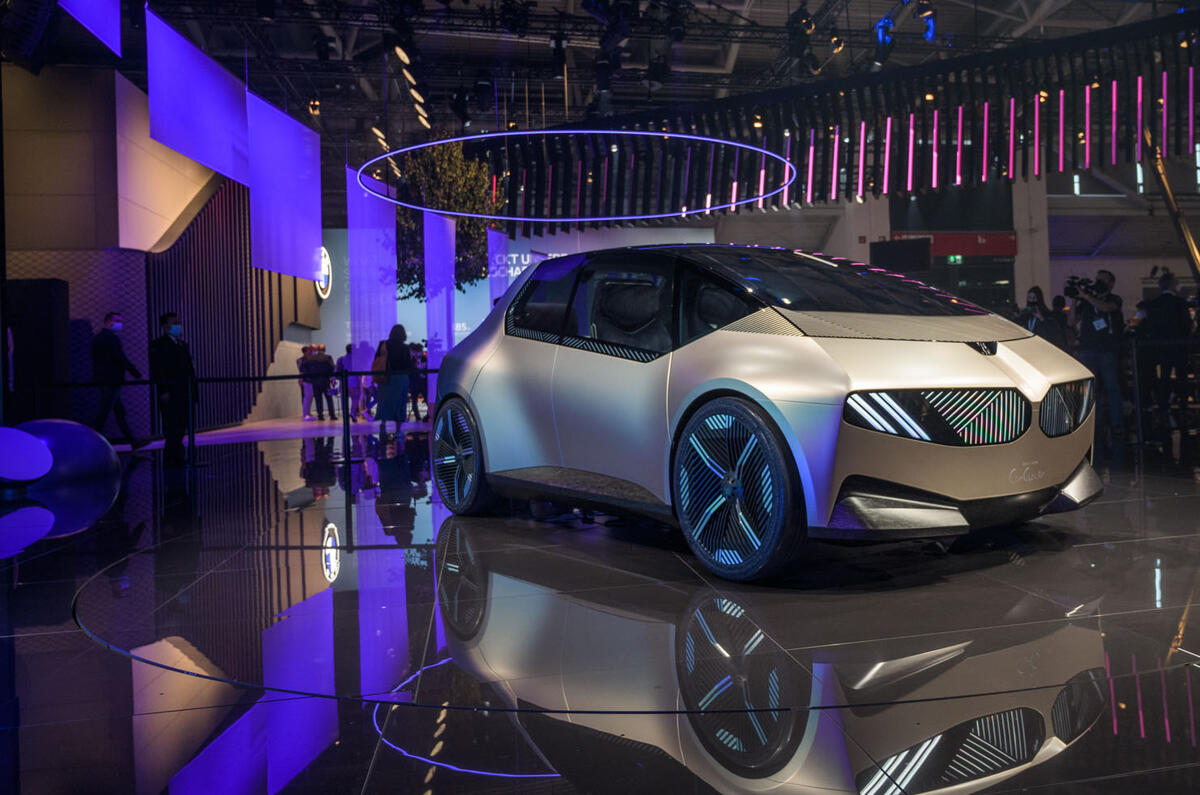
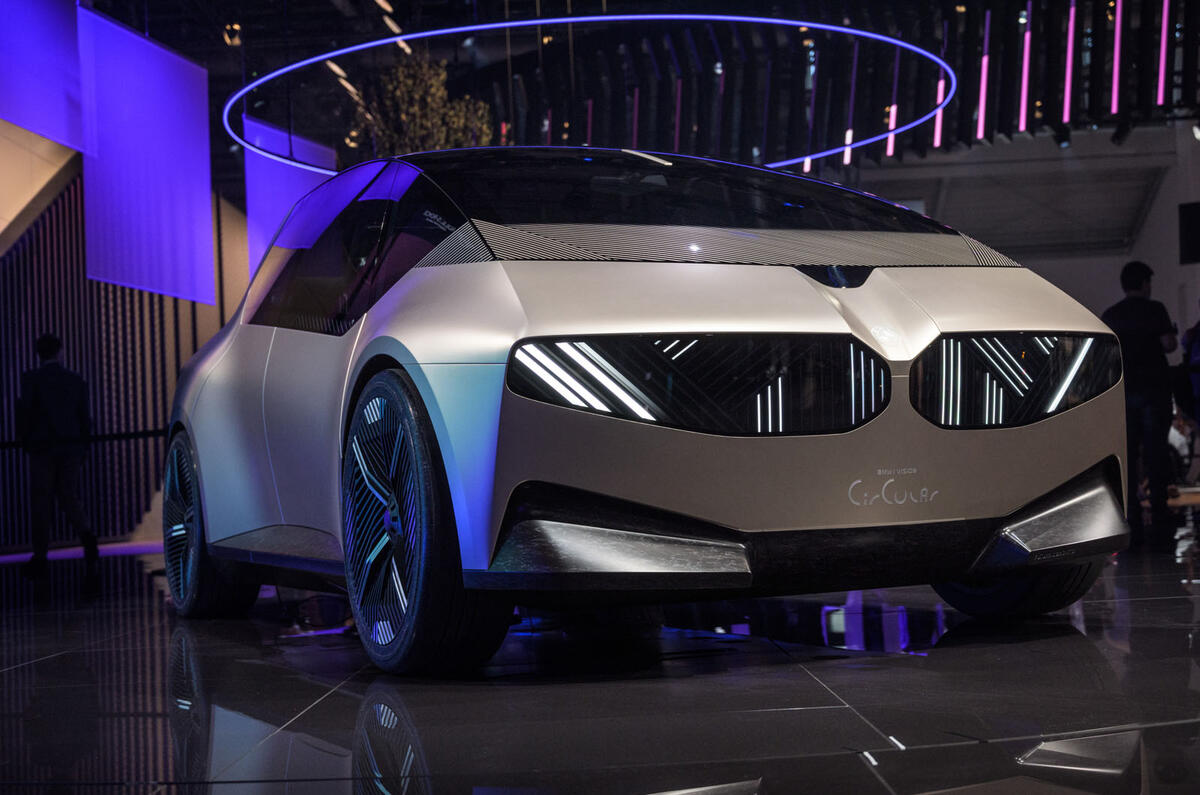
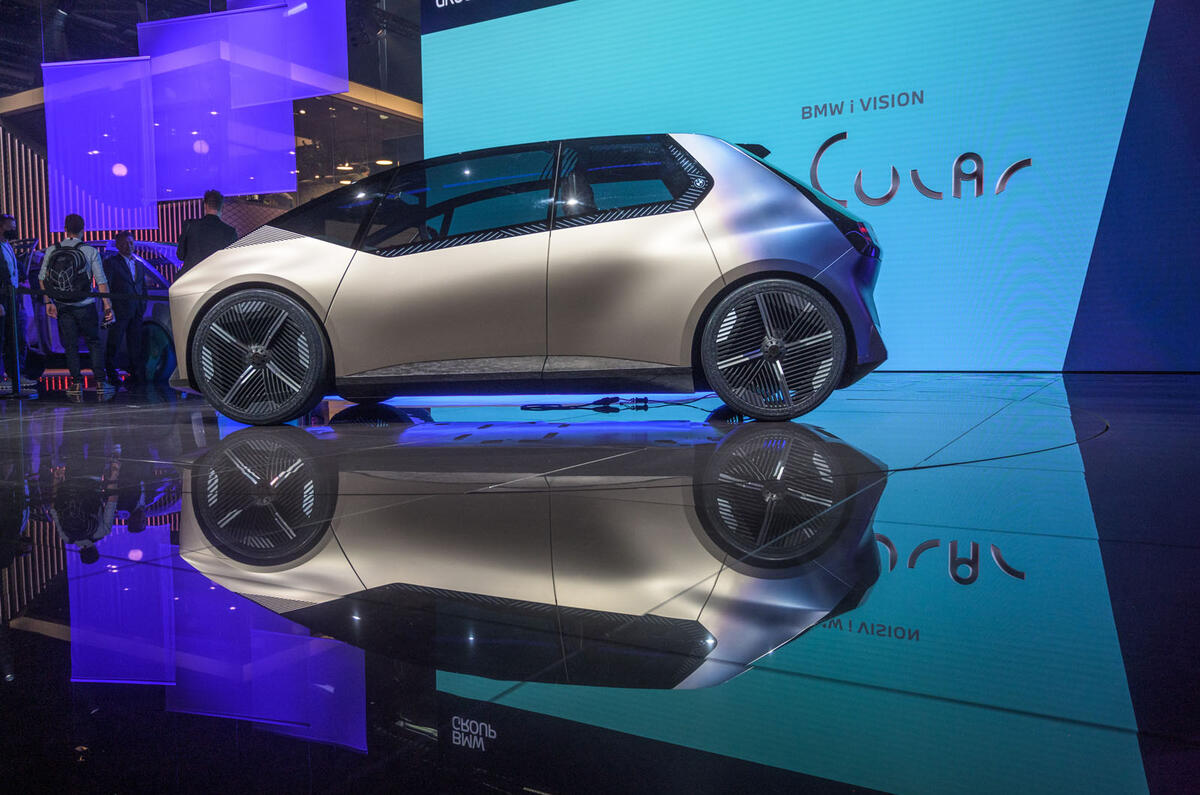
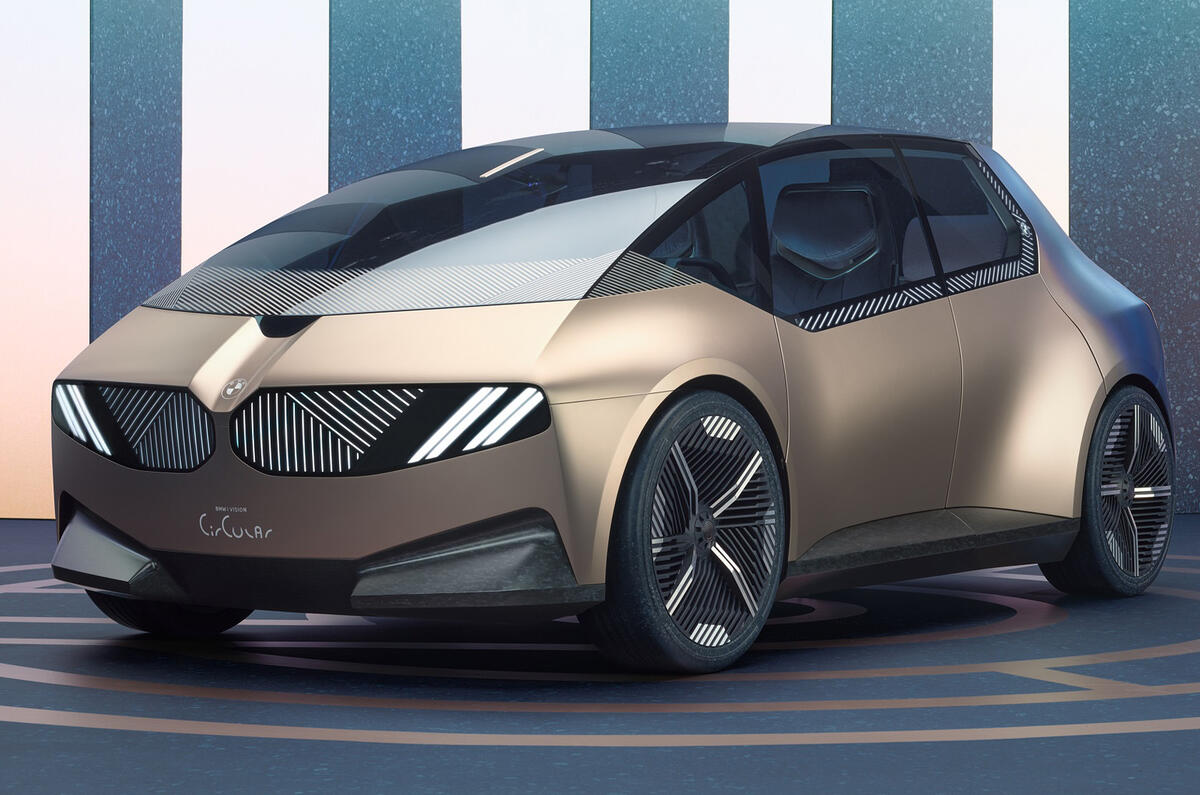
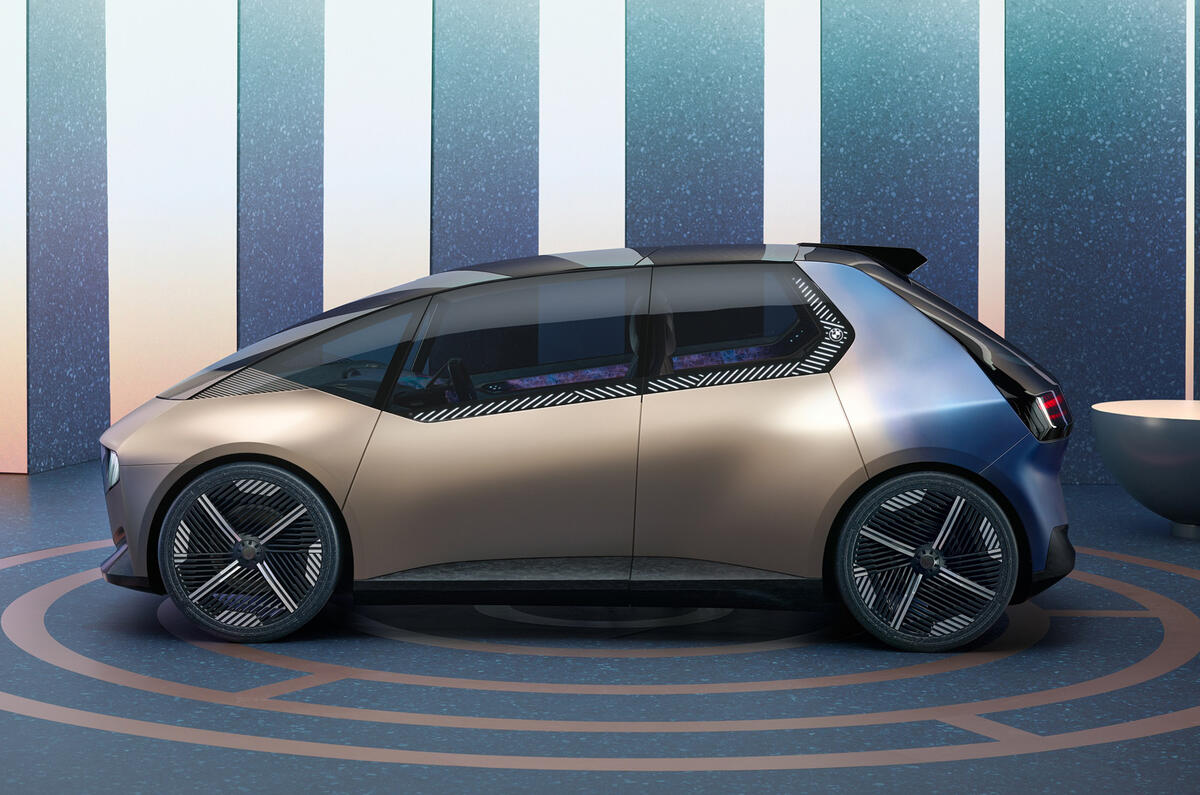
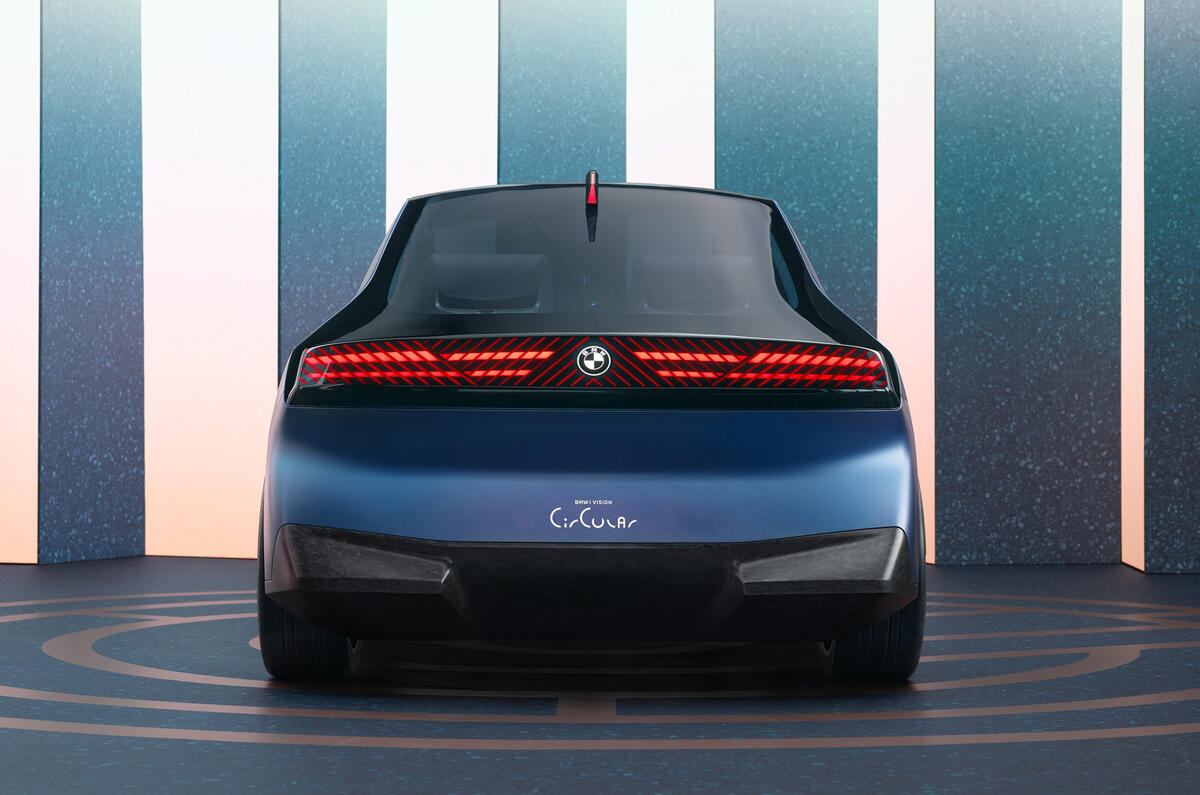
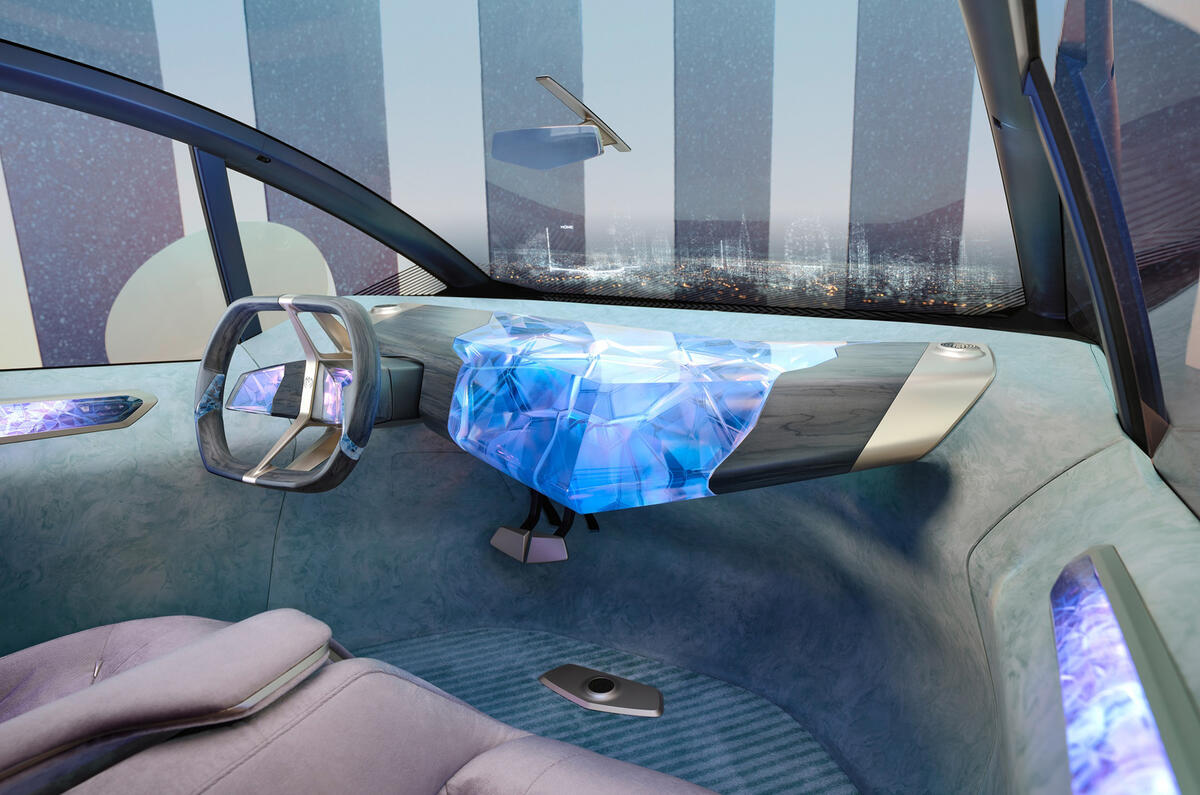
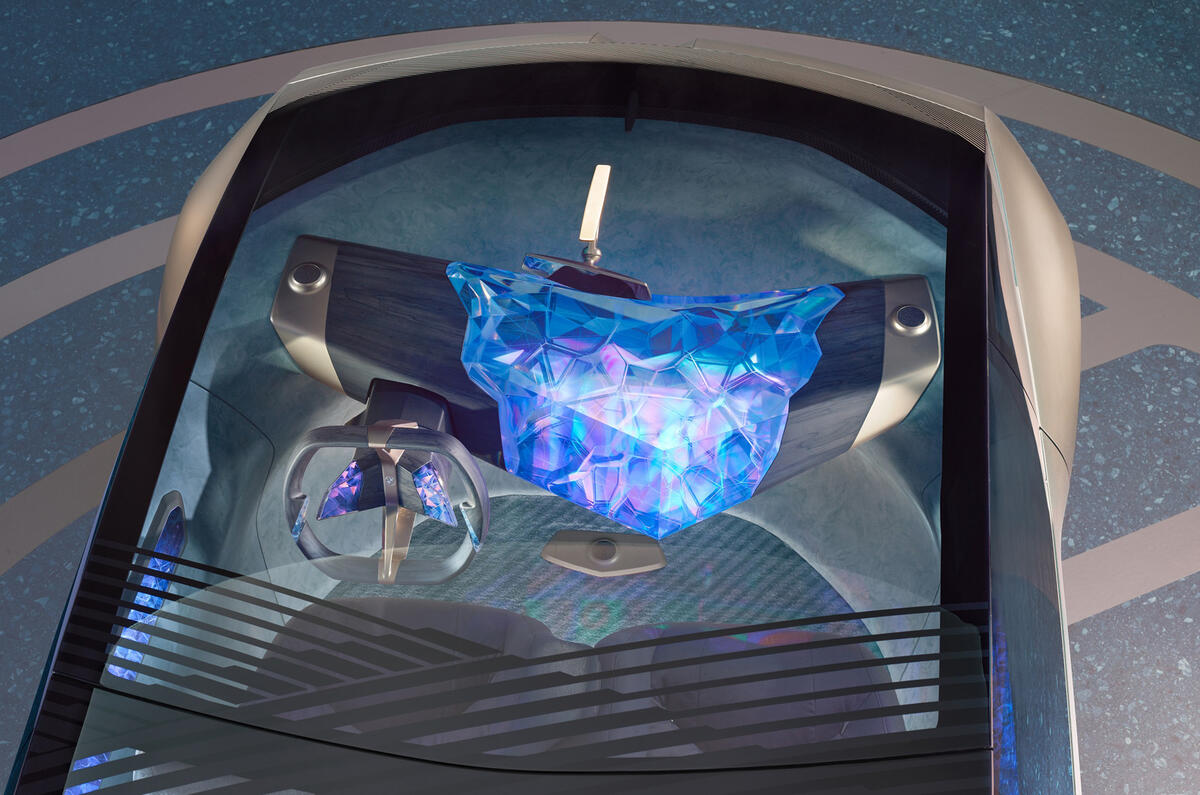
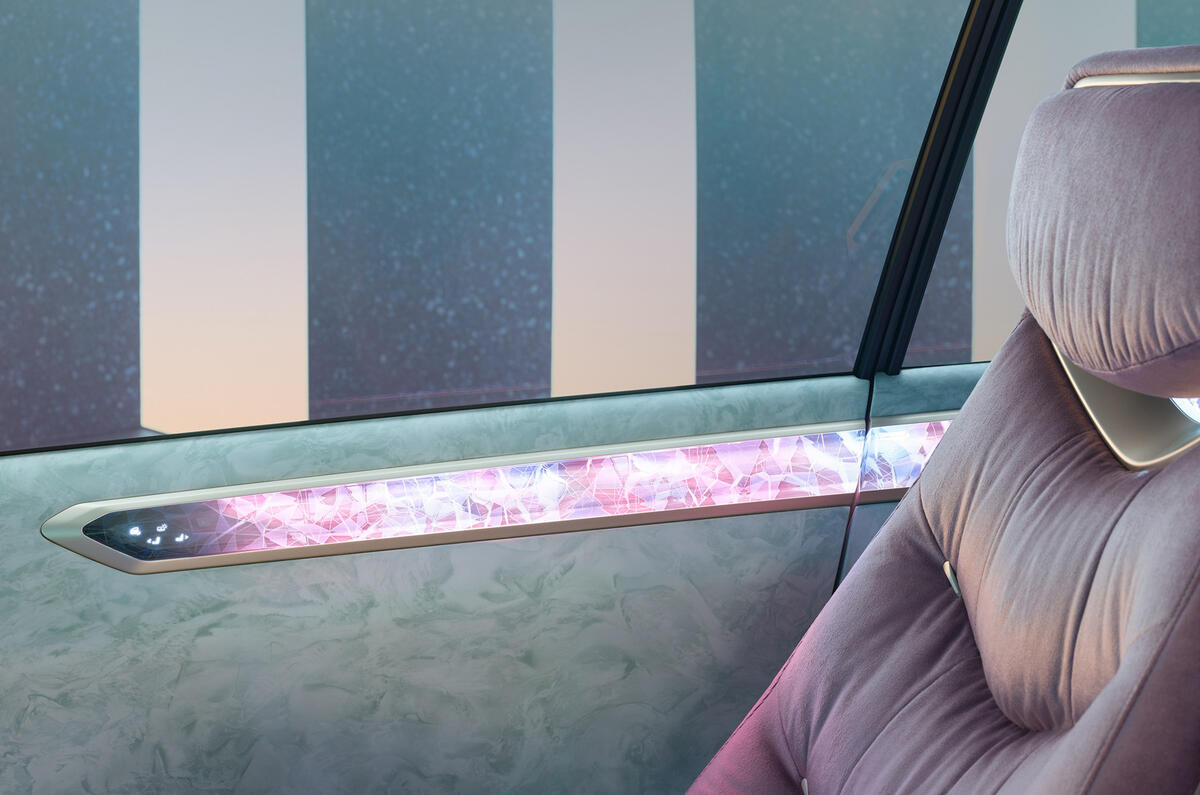
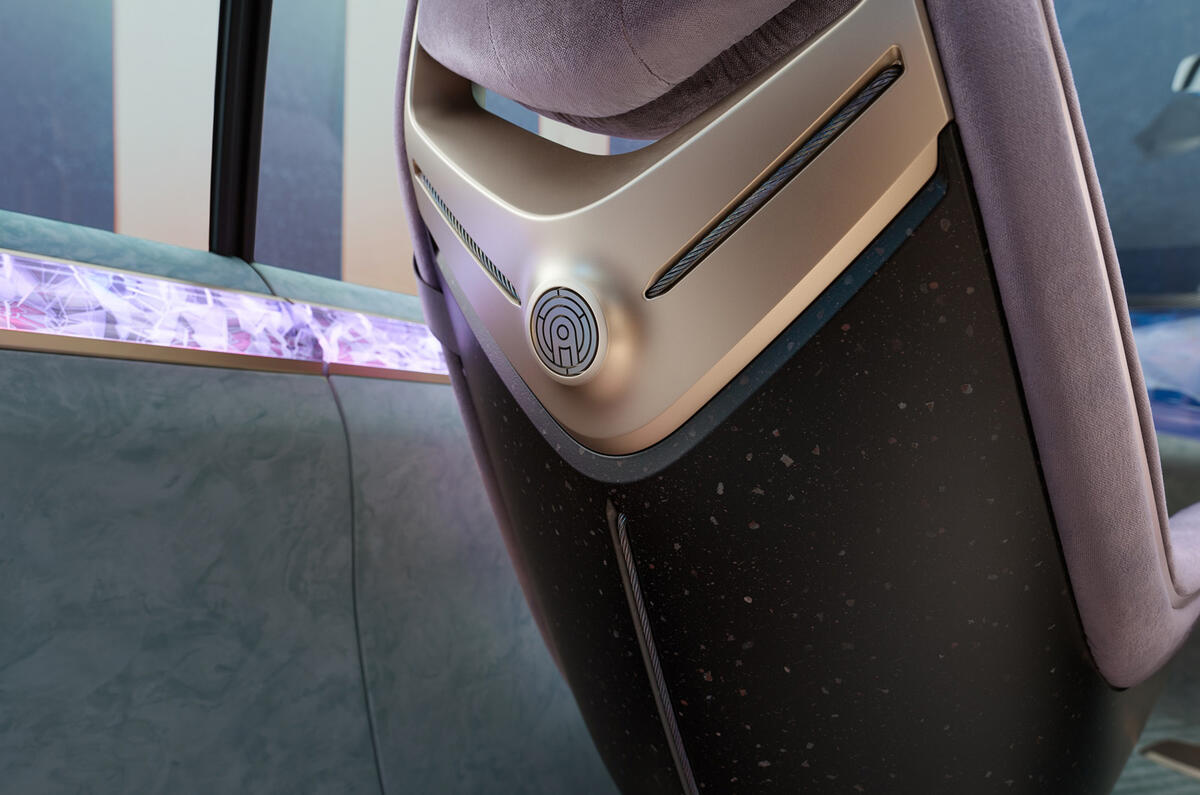
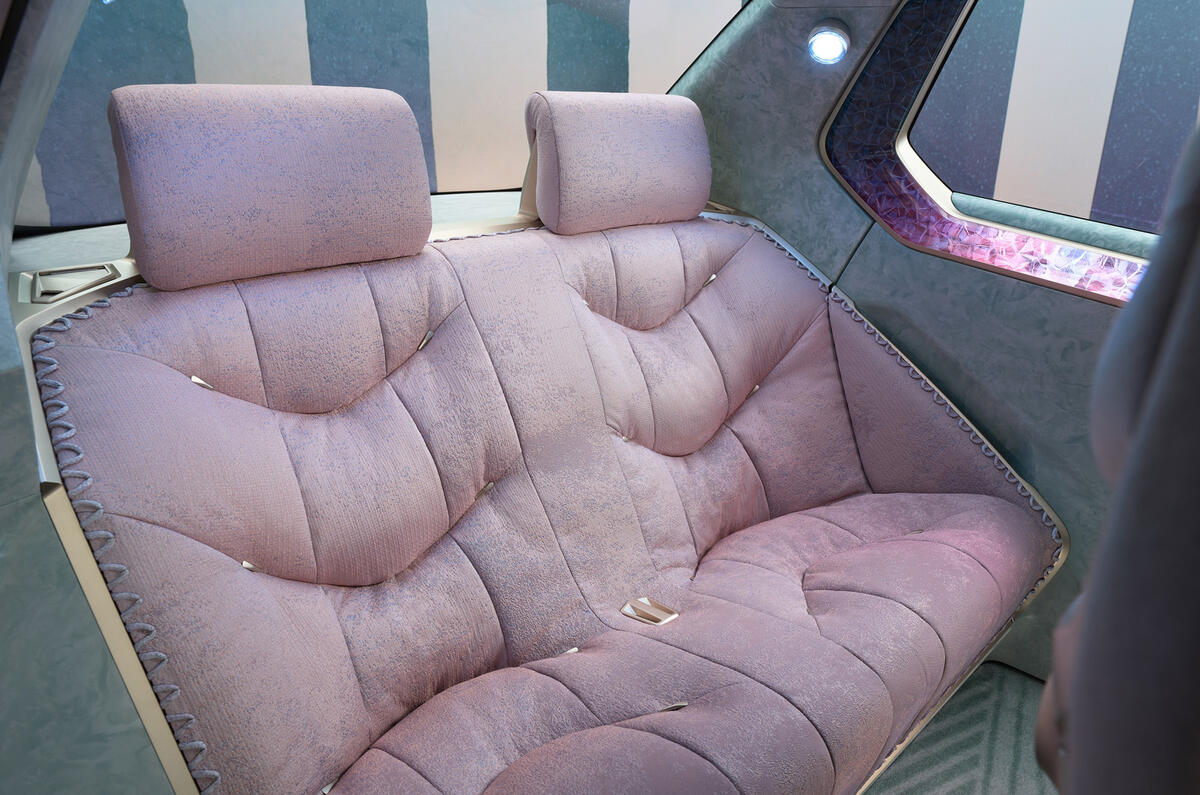
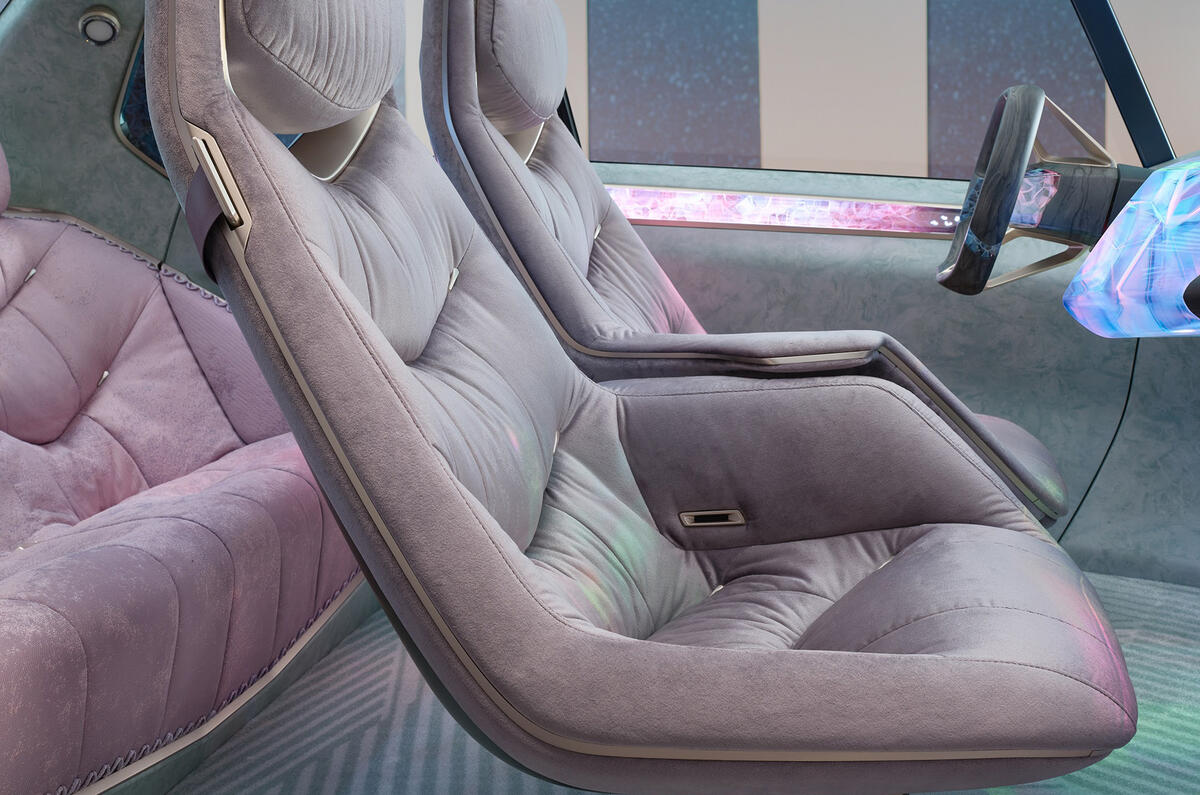
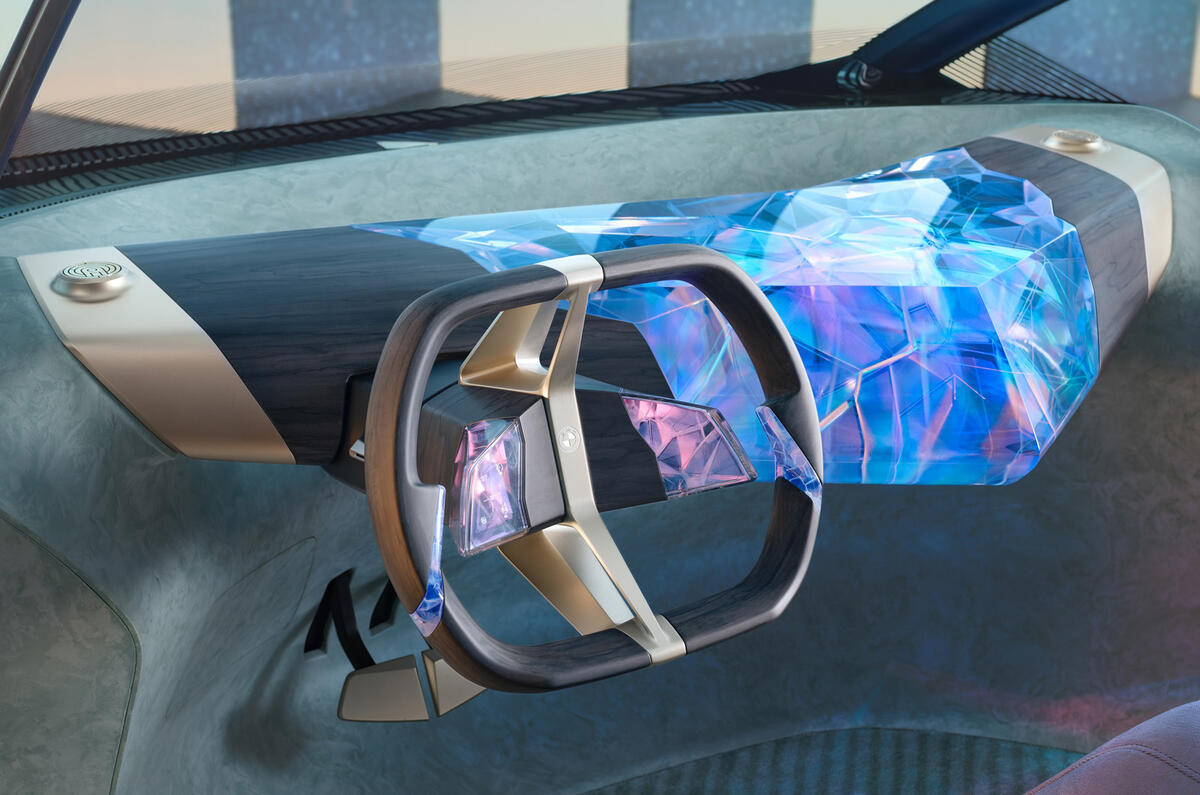
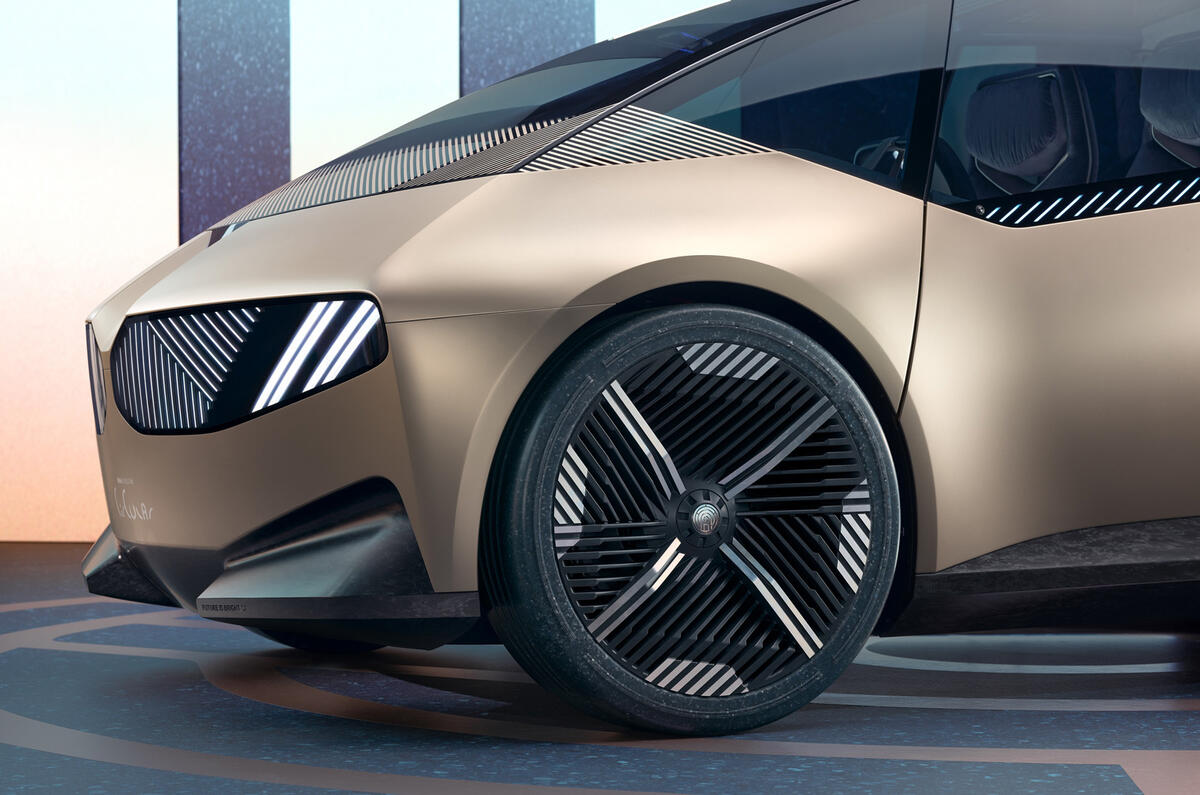
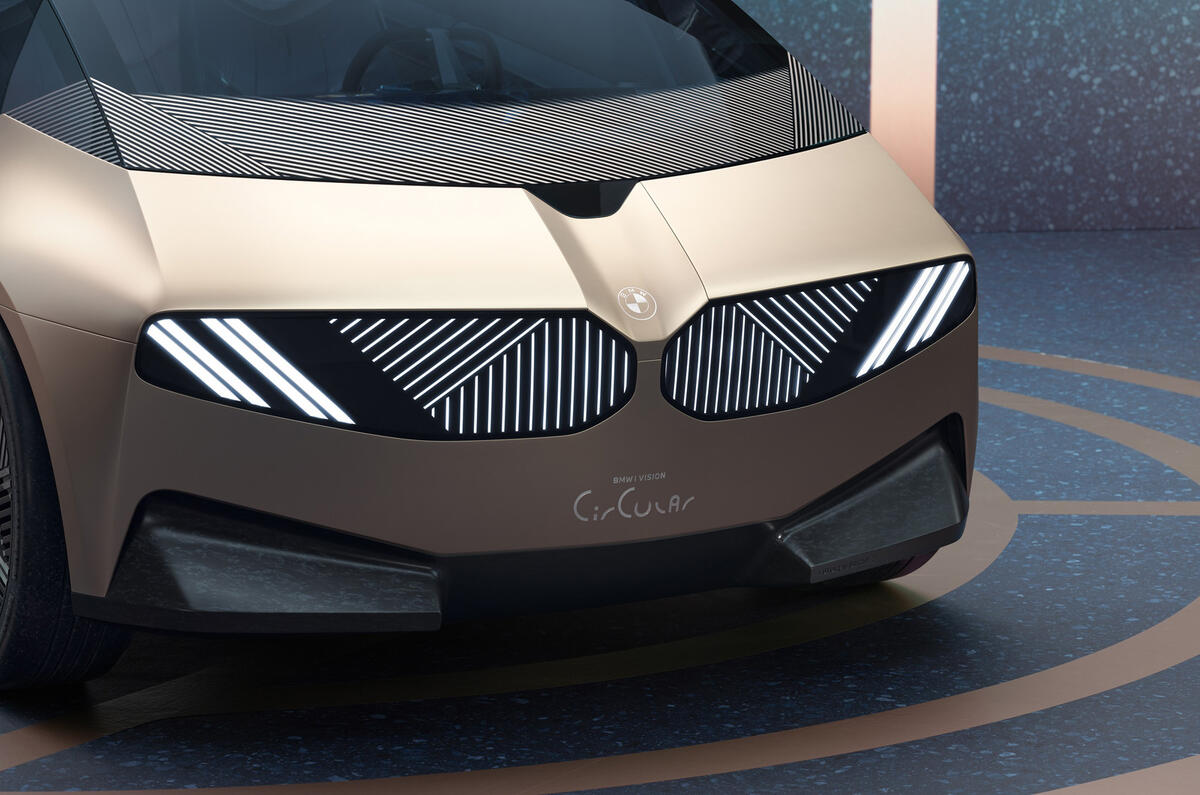
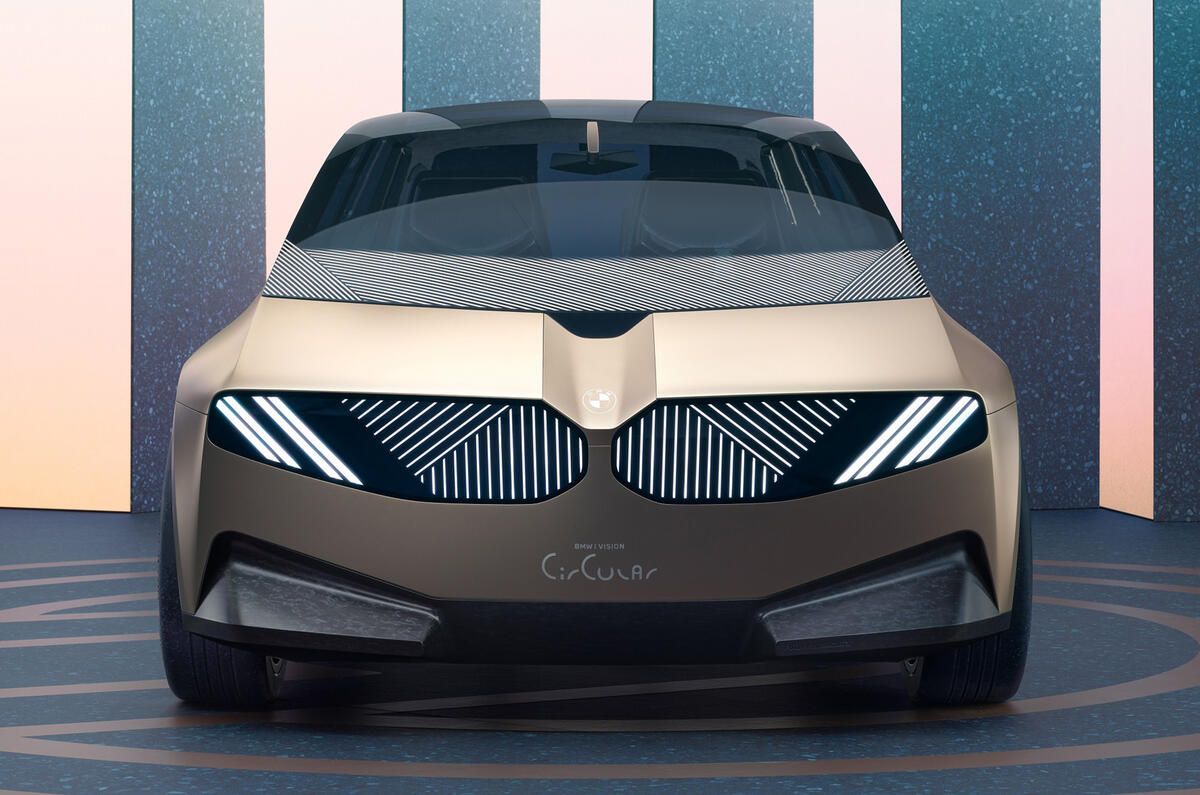
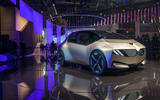
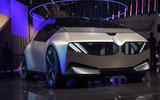
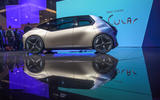
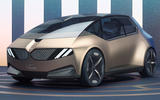
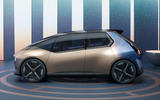
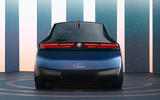
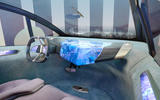
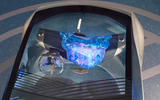
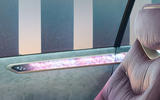
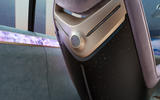

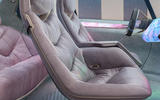
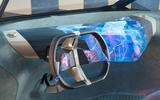
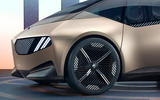
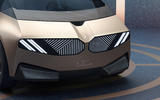
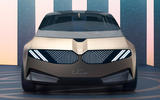

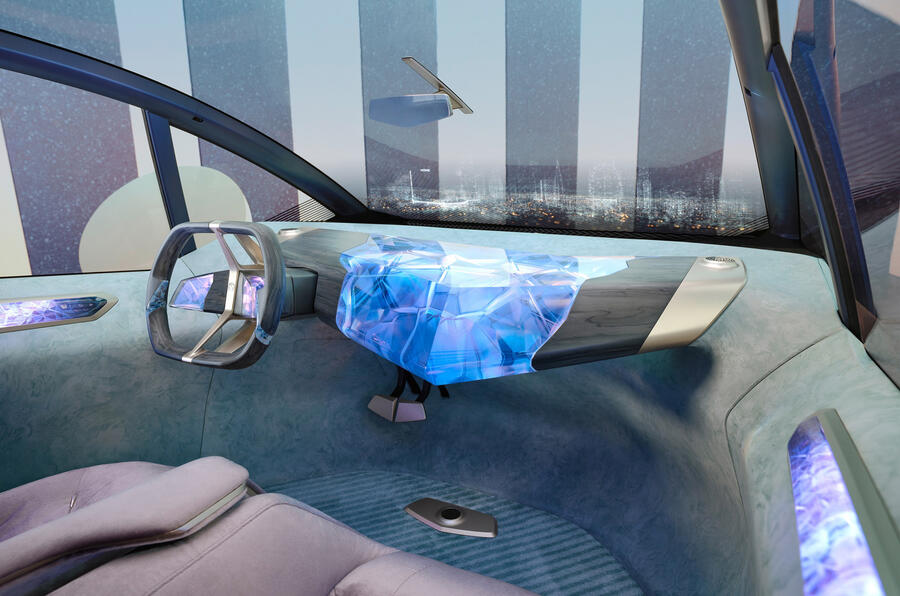





Join the debate
Add your comment
I rather like this. Has echos of the original Espace. And hey, it isn't an SUV! Those rear seats wouldn't look out of place in granny's sitting room lol
Well, compare dto the IdX, it's gorgeous...that's all I can say. I don't hate it but it's overwrought and trying too hard to make a statement.
Nice back story though. Paintless exterior panels is interesting.